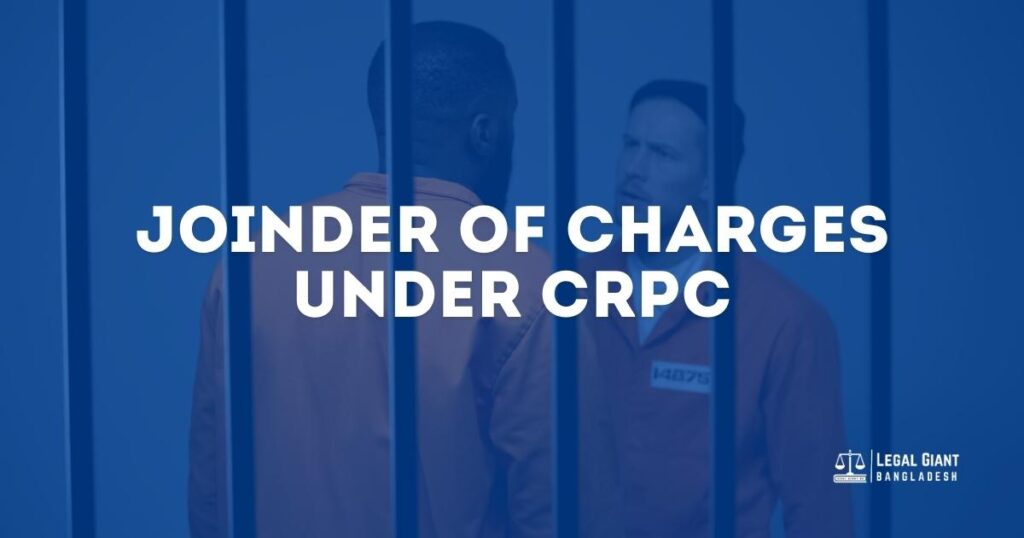The rights of arrested individuals are crucial to ensuring justice and preventing abuse of power. In Bangladesh, these rights are enshrined in the Constitution, the Code of Criminal Procedure (CrPC), 1898, and various international human rights instruments to which Bangladesh is a signatory. This article comprehensively explains these rights to educate citizens and foster awareness.

Constitutional Rights of the Arrested Person
The Constitution of Bangladesh provides the foundation for protecting the rights of arrested individuals:
1. Right to Be Informed of the Grounds of Arrest (Article 33(1))
Article 33(1) ensures that an arrested individual is promptly informed of the reasons for their arrest. This right helps prevent arbitrary arrests and ensures transparency in the legal process.
2. Protection from Arbitrary Detention (Article 33(2))
Article 33(2) mandates that an arrested person be presented before a magistrate within 24 hours of arrest. Detention beyond this period without judicial oversight is illegal.
3. Protection Against Torture (Article 35(5))
The Constitution explicitly prohibits torture, cruel, inhuman, or degrading treatment. This protection extends to individuals in custody, ensuring their dignity is maintained.
4. Right to Legal Counsel (Article 33(1))
Every arrested individual has the right to consult with a lawyer of their choice. This right ensures fair representation and safeguards against wrongful conviction or mistreatment.
Rights Under the Code of Criminal Procedure, 1898
The CrPC complements constitutional protections by specifying the procedural rights of arrested persons:
1. Right Against Arbitrary Arrest (Section 50)
An arresting officer must provide details of the offense and show the arrest warrant (if applicable). If arrested without a warrant, the grounds must be explicitly stated.
2. Right to Bail (Sections 436-450)
In non-cognizable and bailable offenses, the arrested person has the right to be released on bail. Courts may also grant bail for cognizable offenses under specific conditions.
3. Medical Examination of the Accused (Section 54A)
Section 54A requires a medical examination of the arrested individual to document any injuries. This measure prevents torture or ill-treatment while in custody.
4. Right to Silence
While not explicitly mentioned in the CrPC, the right to remain silent is a recognized legal principle. No individual is compelled to incriminate themselves during an investigation or trial.
5. Preventive Measures Against Abuse (Section 167)
Section 167 regulates remand proceedings, limiting police custody to ensure accountability. Magistrates must scrutinize requests for remand to prevent misuse of authority.
International Human Rights Framework
Bangladesh is a party to the Universal Declaration of Human Rights (UDHR) and the International Covenant on Civil and Political Rights (ICCPR), which reinforce domestic protections:
- Article 9 (UDHR): Protects against arbitrary arrest or detention.
- Article 14 (ICCPR): Guarantees the right to a fair trial and legal representation.
- Article 7 (ICCPR): Prohibits torture or inhuman treatment.
Key Responsibilities of Law Enforcement
Law enforcement agencies must uphold the following obligations to respect the rights of arrested persons:
- Maintain Transparency: Provide clear and valid reasons for arrest.
- Ensure Dignity: Avoid any form of physical or mental harm.
- Respect Judicial Oversight: Adhere to court orders and procedural requirements.
Challenges in Enforcing Rights
Despite robust legal safeguards, challenges persist in ensuring the rights of arrested persons in Bangladesh:
- Lack of Awareness: Many citizens are unaware of their legal rights.
- Police Misconduct: Instances of torture or illegal detention are reported.
- Judicial Delays: Prolonged court processes can extend unjust detentions.
Addressing these issues requires stronger oversight, legal reforms, and widespread awareness campaigns.
Also Read: Grounds for Arrest and Exceptions
Conclusion
The rights of arrested persons are fundamental to a fair justice system. Ensuring these rights requires vigilance from law enforcement, the judiciary, and society. By understanding these protections, citizens can hold authorities accountable and promote a culture of justice.
FAQs
- What are the primary rights of an arrested person in Bangladesh?
The rights include being informed of the grounds for arrest, protection from arbitrary detention, access to legal counsel, and protection against torture. - What is the maximum time an arrested person can be held without being presented in court?
An individual must be presented before a magistrate within 24 hours of arrest, excluding travel time. - Can an arrested person be denied bail in Bangladesh?
Yes, for non-bailable and serious offenses, courts may deny bail based on the circumstances and evidence. - Are there safeguards against torture in police custody?
Yes, the Constitution and CrPC prohibit torture, and medical examinations are mandated to document any mistreatment. - How can an arrested person access legal assistance?
Arrested individuals have the right to consult a lawyer of their choice. Free legal aid is also available for those who cannot afford representation.


